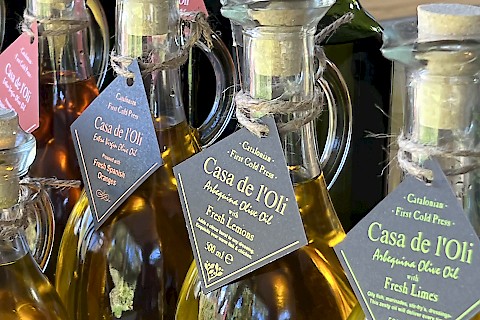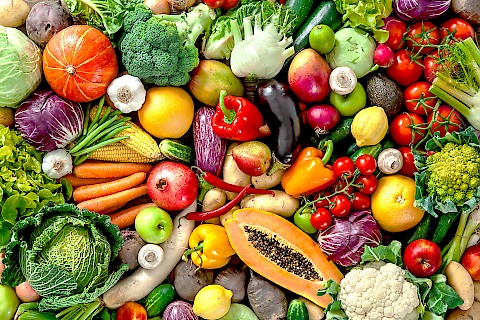What immune support may help you combat Covid-19
Focus on Covid-19
Supporting our own immunity is one area where we can potentially make a difference both in prevention by strengthening our mucosal health, e.g. supporting our Secretory IgA with GI Sol containing Saccharomyces Boulardii perhaps reducing the viral load taken onboard. Also by ensuring our innate and acquired immune systems are fully supported by having enough Vit D3, Zinc (well researched viracidal), alkaline Vit C, Vit A, selenium, TeGreen (Green Tea with the caffiene removed, 4 capsules are the equivalent of 28 cups of Green Tea, a powerful antioxidant and zinc ionophore transporting zinc into the cells), Quercetin (zinc ionophore), omega 3 and other nutrients.
In the Journal of Orthomolecular Medicine, www.orthomolecular.org it is explained how high dose Vit C is being used in the Hospitals in China both orally and intravenously with promising results. Three studies are currently fully underway in China and there is research spanning back 60 years for safe and effective use in viral respiratory conditions. Caution: Intravenous Vit C is contraindicated for a group of people who have Glucose-6-phosphate-dehydrogenase (G6PD) enzyme deficiency, this is mainly found in Black African people and interestingly gives them an advantage to fight Malaria. This enzyme deficiency causes premature destruction of red blood cells known as hemolysis leading to haemolytic anemia.
If you would like to take higher dose Vit C orally it may be tolerated better if it is mildly alkaline, such as Magnesium Ascorbate Vit C powder, not ascorbic acid as this type of Vit C is acidic and may give you a stomach ache. I suggest for maintenance taking 1 gm per day for its antiviral and anti-inflammatory properties and if you get the Covid-19 virus it is safe for you to ramp up this dose to as much as 18 gms per day taken in 2 gm doses spread throughout the day. If you take too much, your stools will become very loose and it will almost seem as though you have diarrhea. If this happens it has done you no harm, just lower the dose to bowel tolerance. Also please again note the caution for people with G6PD enzyme deficiency.
In my view it is vital for most people for our immune systems to be supported using both good diet as well as excellent nutritional supplements, after all these are concentrated foods that are safe and easily metabolised. Many people are eating diets containing far too high a proportion of refined, denatured foods such as white bread, white rice, pasta and sugars that don't contain the nutrients that we all need in sufficient amounts leading to some key deficiencies.
The Alliance for Natural Health has very colourful and easy to understand, one glance pie charts for healthy eating. One for Adults and one for Children that can be accessed by going to their website at www.anhinternational.org. The important point is when our bodies are under viral attack if toxic and inflammatory burdens can be lifted by eating unrefined, whole foods full of key nutrients we may be able to strengthen our resources and be more resilient. Our genetic inheritance is important and how our genes 'express' themselves has a lot to do with our nutrition. Many people don't understand that our genes have a higher or lower level of functioning depending on what they are exposed to and therefore how they 'express' themselves.
Further, a lot of very well researched dietary information is available from the Institute for Functional Medicine in the USA, www.ifm.org, such as their Comprehensive Elimination Diet with an excellent bibliography showing how foods have an anti-inflammatory effect and certain strategies may reduce immune response to food allergies and sensitivities. The important point is that this intervention with nutritious food not only gives us many of the nutrients we need but it arguably also helps may help to lift the burden from our immune systems.
Tip: Every little intervention helps, so I suggest that you overhaul your diet eating balanced and healthy whole, natural foods and if possible ensure that your weight is between 18.5 and 25 BMI (Body Mass Index, a calculation of height and weight)
The supplements that I think are particularly helpful are as follows:
Wholly Immune Powder by Allergy Research 1 scoop per day (contains Quercetin a Zinc ionophore)
OR
Men's Multi Essentials 1 per day, Women's Multi Essentials 1 per day or Multigenics Chewables 1-3 per day (for children) by Nutri Advanced
Magnesium Ascorbate Vit C Powder by Biocare 1 gm maintenance per day ramping up to 18 gms per day spread throughout the day in 2 gm doses every 2 hours if you contract Covid-19. Caution: do not do this if have G6PD enzyme deficiency.
Ultra Clear plus pH by Nutri Advanced (contains glutathione and has an alkalising effect) 1/2 teaspoon mixed with the 2 gms of Vit C powder and 1/4 teaspoon of Wholly Immune powder every 2 hours if you contract Covid-19 to support your immune system.
Note: there are 60 years of research showing Vit C has broad spectrum anti-viral and anti-inflammatory properties with evidence of safe and effective use for respiratory conditions. Caution: Methylene Blue and Vit C at high dose can't be used with people who have G6PD enzyme deficiency.
GI Sol (Sacchromyces Boulardii) by Nutri Advanced 1 per day (boosts Secretory IgA helping protective mucosal health)
Lemon Melts D3 by Nutri Advanced 1 per day (2,000 ius)
Vit D3 is vital for your immune system and is very low in many people coming out of the Winter in UK and other Countries at Northern latitudes where we have had little sunshine. Dr Rhonda Patrick, www.foundmyfitness.com has an excellent analysis about how Vit D may reduce susceptibility to COVID-19 and its associated lung injury.
Eskimo 3 by Nutri Advanced 2-4 per day (boosts our own anti-inflammatory pathways and supports our immune systems)
Laktoferrin with colostrum by Allergy Research 1 per day (helps protective mucosal health)
Humic Acid by Allergy Research 1-2 per day if get Covid-19 (excellent anti-viral)
Prolive by Allergy Research 1 per day if get Covid-19 (excellent anti-viral)
TeGreen by Pharmanex 2-4 per day (powerful antioxidant offering excellent immune support as well as being a Zinc ionophore transporting Zinc, a powerful viracidal into the cells to potentially fight the virus).
Ultra Probioplex Duo by Nutri Advanced 1 per day after dinner (supporting gut flora, an important component to support our immune systems)
Order numbers with discounts are:
Nutri Advanced 0800 212742 Account No/Id: 115412
Biocare 0121 433 3727 Account No/Id: P6602
Nutri Link for Allergy Research products 0845 0760 402 Account: Mary Strugar
Pharmanex, call 07711 584796 for a personal online account to be set up for you
Also consider getting an electric plugin, home nebuliser e.g. Omron from Boots with face mask. This must be used with sterile saline water and it is important to sterilise the mask after every use, place in boiling water like a baby's bottle for a couple of minutes. This is used to help loosen and break down mucous in the lungs, if needed. It may be safer to go to Hospital if you need this kind of intervention so please do seek medical support urgently at this point.
Further if you would like to test your nutritional status (using established nutritional immune markers) you can in two Genova Diagnostic tests, the Metabolic Analysis Profile giving a wide range of nutritional markers (many relevant for immune support) with a urine sample and the Comprehensive Adrenal Stress Profile giving you Secretory IgA levels taking a saliva sample, vital for protective mucosal health.
Background information from www.clinicaleducation.org, by Mike Ash and Antony Haynes
A novel coronavirus, 2019-nCoV, has been identified as the cause of an outbreak of respiratory illness that originated in Wuhan, China, and which has spread to several other countries around the world. It’s likely that by the time this is published that a far greater understanding of the mechanisms and risks associated with this virus will be better understood. Currently it represents a varied level of risk depending on your geography, exposure, age, health and immune competence.
Johns Hopkins have released a live Coronavirus web page, that shows key data in terms of its confirmed cases and outcomes and may be a useful place to start when considering relative risk. The World Health Organisation also provides a regularly updated information portal, that can assist in further understanding. The New England Journal of Medicine is also running a series of rapidly published technical articles on the developments concerning the viral transmission and its outcomes.
Inevitably there are questions about practical steps one can take to reduce risk of infection, not just from this virus but other respiratory ones too, and how to enhance innate immune capability to further reduce the risk of being overwhelmed by symptoms, of all respiratory viruses. Viruses cannot reproduce on their own. To reproduce, a virus must bind to a living cell inside some organism, insert its genetic material into that “host” cell, and take over the cell’s reproductive “machinery.” The virus then makes copies of itself – maybe hundreds of thousands. Sooner or later, this kills the infected cell – causing the virus to leave the cell and cause illness. Once out of the host cell new viruses start the process over, attacking other cells until the immune system, and or medication controls their activity and replication.
Viruses Must First Circumvent The Mucosal Immune System
Mucosal immunity is important for long-term protection and forms a first line of defence against mucosally transmitted pathogens such as coronavirus and influenza. Mucosal defence against pathogens consists of both innate barriers, such as mucous, epithelium, and innate immune mechanisms, and adaptive host immunity. The latter consists predominately, at mucosal surfaces of specialised thymic derived cells called CD4+ T cells, secretory immunoglobulin A (SIgA), secretory immunoglobulin M (SIgM) and antigen-specific (memory primed) cytotoxic T-lymphocytes (CTLs). Although increasingly understood it’s still not clear if SIgM may compensate for IgA deficiency in the gut and lungs.
If the infective assault on mucosal tissues is successful, by intracellular pathogens such as a virus, it will result in the induction of cell-mediated immunity. This includes the production of CD4+ T helper-type 1 cells, as well as CD8+ cytotoxic T-lymphocytes. These responses are normally accompanied by the synthesis of secretory immunoglobulin A (SIgA) antibodies, which provide an important first line of defence against invasion into deeper tissues by these pathogens. It is possible to stimulate the B cells and plasma cells to increase production of SIgA and SIgM by using colostrum and Saccharomyces Boulardii, two natural agents of immune support.
11 years ago, we published an evidence based nutritional strategy for optimal mucosal health. It’s reasonable to explore this programme to enhance mucosal immune capabilities. A recent response based on current understanding of all viral resistance can be found here.
How 2019-nCoV Spreads
Much is unknown about how 2019-nCoV, a new coronavirus, spreads. Current knowledge is largely based on what is known about similar coronaviruses. Coronaviruses are a large family of viruses that are common in many different species of animals, including camels, cattle, cats, and bats. On occasion but rarely , animal coronaviruses can infect people and then spread between people such as with MERS, SARS, and now with 2019-nCoV.
Most often, spread from person-to-person happens among close contacts (about 6 feet). Person-to-person spread is thought to occur mainly via respiratory droplets produced when an infected person coughs or sneezes, similar to how influenza and other respiratory pathogens spread. These droplets can land in the mouths or noses of people who are nearby or possibly be inhaled into the lungs. It’s currently unclear if a person can get 2019-nCoV by touching a surface or object that has the virus on it and then touching their own mouth, nose, or possibly their eyes.
Typically, with most respiratory viruses, people are thought to be most contagious when they are most symptomatic (the sickest).
It’s important to note that how easily a virus spreads person-to-person can vary. Some viruses are highly contagious (like measles), while other viruses are less so. There is much more to learn about the transmissibility, severity, and other features associated with 2019-nCoV and research is ongoing.
SHARE WITH FRIENDS
More News



